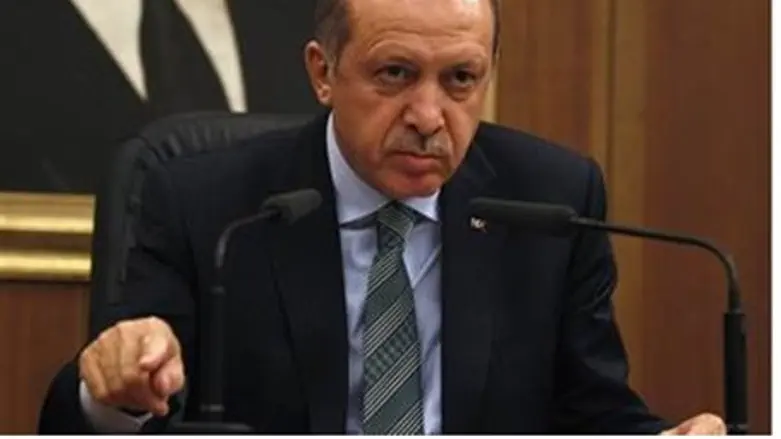
Turkish police on Sunday arrested the editor of Turkey's biggest-selling newspaper and 26 others in lightning raids on supporters of an American-based cleric who has become President Recep Tayyip Erdogan's top foe, AFP reported.
The operation was the most significant yet against supporters of Fethullah Gulen, an influential former ally of Erdogan whom the Turkish strongman accuses of running a parallel state from abroad.
At least 27 people were detained in raids across Turkey, including Ekrem Dumanli, the editor-in-chief of the Zaman daily newspaper which is closely linked to Gulen.
Those held include an executive of Samanyolu television, also seen as close to Gulen, as well as a TV director, producers, scriptwriters and some police officers.
Arrest warrants were issued for a total of 31 people, the official Anatolia news agency reported, adding that the detainees were accused of a number of offences including "using intimidation and threats" to "form a gang to try and seize state sovereignty", "forgery" and "slander."
The European Union condemned the police action, saying it went "against the European values" that Turkey aspires to as it seeks membership in the bloc.
In a statement, foreign policy chief Federica Mogherini and enlargement commissioner Johannes Hahn said the raids were "incompatible with the freedom of media, which is a core principle of democracy."
U.S. State Department spokeswoman Jen Psaki said Washington was "closely following" the developments.
"As Turkey's friend and ally, we urge the Turkish authorities to ensure their actions do not violate these core values and Turkey's own democratic foundations," she said.
The crackdown came almost a year to the day after Erdogan's government was rocked by stunning corruption allegations that the authorities denied and blamed on Gulen.
The corruption probe, opened on December 17, 2013, saw the arrests of dozens of leading businessmen and political figures close to Erdogan, who was prime minister at the time.
Erdogan's ruling Justice and Development Party (AKP) came under mounting pressure during that time, especially when audio recordings were leaked in which Erdogan and his son allegedly discuss how to hide vast sums of money.
In response to the leaked recordings, Erdogan threatened to ban websites such as YouTube and Facebook.
The corruption scandal had little effect on the country’s presidential elections which were held a few months later and which Erdogan won.